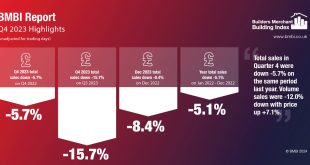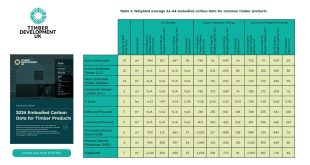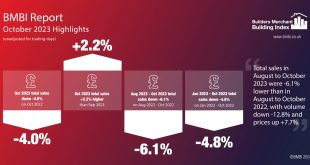It is a capital mistake to theorize before one has the data
Growing up in the 1970s, this is the time of year when I would grab hold of the Argos catalogue and scour through the toy section, turning down the pages when I found yet another item that I couldn’t possible conceive of being able to live without.
There’s something to be said for being able to flick through a catalogue of stuff. Why else would landscaping, bathroom and kitchen suppliers manufacturers still spend gazillions producing glossy brochures? They do so because by and large we still like to turn a page. (And, as editor of a print-based publication, long may that continue).
You can’t flick through an online catalogue in quite the same way. You certainly can’t turn down page or stick a post-it note in so you can find it again. Oh sure, you can ‘bookmark’ a page on the iPad, but it’s not the same. See also, cookbooks: glossy pages of the latest Nigella or Jamie book are far more forgiving of floury, sticky hands than an iPad screen is.
There’s also something else that an old fashioned catalogue has over an online or electronic version and that’s in the set-up. If you’re looking, as my 70s self might have done, for a chair for use in a dolls’ house, you’d turn the pages until you found it. Or, if you were a bit more organised (I wasn’t) you’d look in the index for ‘Dolls Houses: Furniture’ and then flick through that section until you found what you were looking for.
Put that catalogue online and what happens? Would you use the search term Dolls House and get pages and pages of actual dolls’ houses? Or Furniture and get everything from a Sindy kitchen sink to an actual full-size sofa. Or search very precisely for ‘chair for dolls’ sitting room’ and then go straight to the item, thereby missing out on all that lovely browsing and possible upselling?
It’s the same in this industry. Any company that wants to sell online has to know exactly what its customers are looking for. Not only that, but had to guestimate exactly how they will ask for those items. If I want nails, should I be looking under Nails or Fixings? Or Hammer Accessories? Would I look under Building Materials or Hardware? And if I could choose from eight different sizes of hammer, each one would have to be categorized under every heading that I might think of when searching.
Suppose I found a hammer on merchant A’s website, but wanted to buy it from Merchant B’s website because Merchant B has cheaper nails or a better delivery service. But when I go to search for the hammer, I can’t find it on Merchant B’s website because the person who input the data to that particular website doesn’t think the same way that the person who did it for Merchant A does. So I either make two separate purchases from different merchants, which doesn’t do my customer loyalty ranking much good or I give up and go to the pub instead.
This is a rather ham-fisted way of saying that getting the data right and compatible across the sectors is vital if the industry is to really reap the benefits of increasing digitisation. So it’s good that NBG and the BMF are making a start with their adoption of the ETIM process, which the BMF is spearheading in this industry.

 Builders Merchants Journal – BMJ Publishing to Builders Merchants and the UK merchanting industry for more than 95 years
Builders Merchants Journal – BMJ Publishing to Builders Merchants and the UK merchanting industry for more than 95 years



